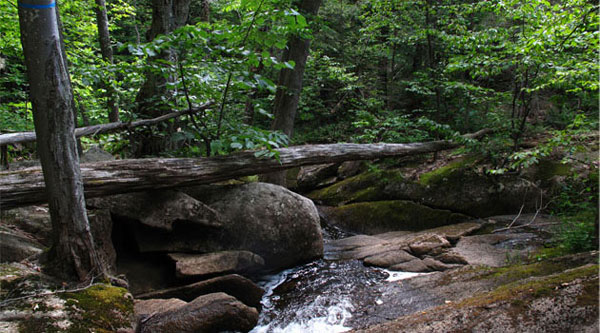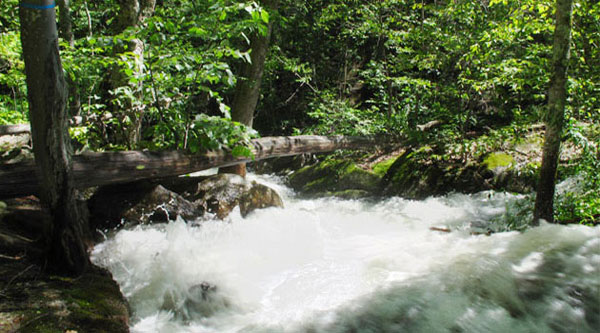Watching Irene from our small cabin in the New Hampshire woods was a sobering experience. Even though it was downgraded to a tropical storm by the time it hit us, trees were swaying dangerously, the water in the lake was rising and the proverbial babbling brook which normally carries the excess water away was transformed into something of a raging river (see my before and after photos below). We were fortunate, unlike so many others, not to have suffered any permanent damage.


But watching the storm from the window, I knew we were in for another fruitless climate change "he said/she said," as has occurred after every other extreme weather event in the past few years -- wildfires, floods, tornadoes and, of course, tropical storms:
Last week it was Bill Nye "The Science Guy" who attempted to simplify climate change for a Fox News audience. It was a valiant effort, but once again the audience was undoubtedly left more confused and uncertain than ever.
The very nature of the question -- in this case whether Hurricane Irene was the product of a warming climate -- seems almost purposefully designed to elicit the same debate with the same outcome time and again.
It is not unreasonable that the media looks to climate scientists for the answers to such questions. Nor should it come as a surprise that scientists have trouble translating something as complicated as the global climate system into a simple yes or no answer. What's unreasonable is the question itself.
It's as if every smoker who didn't die of lung cancer were trotted out as evidence that the scientific consensus on this issue is up for debate.
Approximately 85 to 90 percent of lung cancer deaths can be attributed to smoking. Yet not everyone who smokes gets lung cancer. There are many factors that influence whether a smoker is likely to get cancer, but even a heavy, long-term smoker has less than a 20-percent chance of actually getting the disease.
Scientists don't know why some smokers get cancer and others don't. But just because your Uncle Joe smoked three packs a day for 50 years and died at the age of 90 does not in any way undermine the scientific consensus on the link between smoking and cancer. Nor would you expect the media to even ask that question, though once upon a time, corporate interests paid a few scientists to try to raise doubts in both the media's and the public's mind on this very question.*
There are parallels between the unfathomable intricacy of the human body and that of the global climate system. We know a great deal about the body -- enough to perform exquisitely complex brain surgery despite the fact that we understand only a fraction of what goes on in the human brain.
Similarly, we have extensive knowledge about the climate -- enough to know that it is warming, that humans are responsible, and that we are in for a wild ride when it comes to extreme weather events, despite the fact there is still much about the climate that we don't know. Just as we would never ask whether a single individual smoker's story constitutes proof or disproof of the theory that smoking causes cancer, we should not look at extreme weather events in isolation.
It's time to change the terms of this fruitless debate. When asked whether an extreme weather event is caused by climate change, scientists should reframe the debate by rephrasing the question: "Are more events like this what you would expect in a warming world?" The answer would be a resounding "yes."
*The Tobacco Control Act was finally signed into law in 2009 by President Obama, nearly 60 years after the first lawsuit was filed against a major tobacco company (Old Golds) for false advertising.
